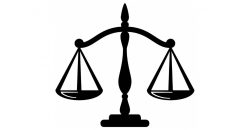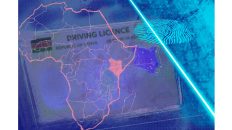South Sudan is among the world’s poorest countries, with 82% of the population living in poverty, according to the World Bank. This is however far from reality for South Sudan’s political elite and their families, who are often flown out to be residents of first world countries.
In June 2019, former US Under Secretary of the Treasury for Terrorism and Financial Intelligence, Sigal Mandelker, encouraged Kenyan officials to investigate real estate investments purchased in Kenya by high-ranking South Sudan officials and their cronies. Such investments have included lavish homes located in Kenya’s Lavington area owned by South Sudan President Salva Kiir and Vice President Riek Machar. These assets are suspected to have been purchased with the proceeds of corruption. The government of Uganda has also enabled financial crimes and war profiteering by South Sudan’s elites.
Africa Uncensored previously published an investigative report which found that former Chief of Staff of the South Sudanese military Paul Malong, who is on the United Nations sanctions list for commanding human rights abuses, owns a home in Nairobi guarded by members of Kenya’s armed forces.
By purchasing assets outside of South Sudan, elites can launder dirty money, often diverted from the state, to their personal coffers. This offshoring of funds makes it very difficult for the state to reclaim them. This, in turn, keeps the general population of the oil-rich country in poverty.
John Prendergast, the co-founder of The Sentry, has stated that Kenyan commercial interests have enabled human rights abuses in South Sudan to loot the proceeds of the country’s natural resource wealth.
“The government and rebel leaders in South Sudan who are destroying their country through atrocity crimes such as village burning, mass rape, child soldier recruitment, and obstruction of humanitarian aid are the same people who have looted the world’s newest country of billions of dollars of natural resource wealth. The Kenyan real estate and banking sectors are critically important getaway cars for this South Sudanese looting machine,” he said.
Below are some of the ways that Kenya has enabled illicit financial flows at the cost of South Sudan’s people:
Dubious Deals
Loopholes in anti-money laundering and countering the financing of terror (AML/CFT) laws in Kenya have enabled South Sudanese elites to more easily stow funds in Kenya. Kenya has, on separate occasions, been, grey-listed by the Financial Action Task Force (FATF) because of its poor record of enforcing AML/CFT laws, before being reinstated after taking corrective measures.[sm1]
FATF found that money launderers often employ a “hide-in-plain- sight strategy”, taking advantage of ambiguous laws to acquire and control illegally obtained assets.
In a mutual evaluation report for Kenya, the Eastern and Southern Africa Anti-Money Laundering Group (ESAAMLG), a FATF-style regional body, observed that professionals offering legal, accounting, and other financial services were not subject to anti-money-laundering obligations in Kenya. Legal professionals are often, for instance, hired to establish legal persons in the form of shell companies that can then purchase assets without revealing beneficial ownership.
ESAAMLG also found that Kenyan laws did not require financial institutions to scrutinize transactions with people from/in countries that are not compliant with FATF standards, such as South Sudan.
Other loopholes that make Kenya and other African states vulnerable to money laundering, according to a report by The Sentry, include “insufficient legal oversight by regulators for the real estate sector, insufficient customer due to diligence requirements for financial institutions involved in these purchases, and lack of domestic understanding of due diligence requirements by real estate professionals.”
Shell companies and trusts
“It is easier to obtain an untraceable shell company from incorporation services in the United States than in any other country save Kenya,” a Griffith University paper on ‘global shell games’ states. The ESAAMLG evaluation report also noted that anti-money laundering laws in Kenya do not provide a mechanism to register or obtain accurate and current information about the beneficiaries of trusts, settlors, and trustees, which would otherwise be helpful in tracking potential criminals.A recent report by The Sentry on ‘Looted funds used to purchase real estate property in Africa’ shows that properties owned by politically exposed persons are often held in the form of trusts and shell companies, which are held in the names of family members.
Lack of political will to curb money laundering
Even after the guards seen at Paul Malong’s home in an Africa Uncensored expose were identified as Kenyan, Cabinet Administrative Secretary in the Ministry of Foreign Affairs Ababu Namwamba and Kenya Police Service Spokesman Charles Owino denied that they had been drawn from Kenya’s police service. Owino dismissed claims that Paul Malong is a human rights violator as rumours, despite the UN sanctions.
Political will is the central problem hindering productive anti-money-laundering and countering the financing of terrorism in Kenya, a study by the Intergovernmental Authority on Development (IGAD) indicates. There is no evidence of a proactive culture of investigations into suspicious asset acquisitions and cash transactions, largely because parliamentary and executive representatives have also turned a blind eye on these issues.
A policy statement by the Institute of Economic Affairs outlines the impending repercussions should the government of Kenya fail to soon take a firm stance against illicit financial flows from South Sudan. This includes risking its position as an international financing centre, distortion of markets because of the exorbitant prices at which assets such as real estate are sold. In addition, Kenyan banks could earn such a negative reputation that they get black-listed for non-compliance with money-laundering regulations. Additionally, the illicit money in question could go a long way in aiding South Sudan, often the subject of international attention when famine strikes, in the development of various sectors, including its own food security.





Add comment